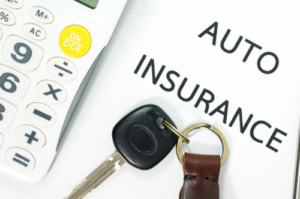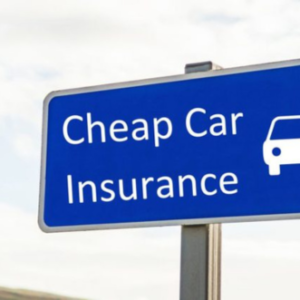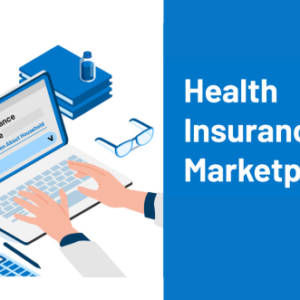Businesses rely heavily on vehicles to carry out daily operations. Whether you run a small delivery service, a fleet of trucks, or a single vehicle for business errands, auto insurance is a critical investment. Understanding the nuances of auto insurance tailored for businesses can protect your assets, reduce financial risk, and ensure compliance with legal requirements.
Why Auto Insurance is Essential for Businesses
Auto insurance is more than just a regulatory requirement; it’s a safeguard for your company’s financial health. Accidents, theft, or unforeseen events can lead to significant costs, ranging from vehicle repairs to legal liabilities. Business auto insurance ensures these risks are mitigated, allowing you to focus on your operations without undue stress.
Key Benefits of Auto Insurance for Businesses:
- Financial Protection: Covers repair costs and medical expenses arising from accidents.
- Liability Coverage: Protects against third-party claims for property damage or injuries.
- Compliance: Ensures adherence to state and federal regulations.
- Business Continuity: Minimizes downtime by providing quick access to repairs or replacement vehicles.
- Peace of Mind: Lets you operate confidently, knowing your vehicles and employees are covered.

Types of Business Auto Insurance Coverage
Business auto insurance offers various coverage options, each designed to address specific risks. Selecting the right mix of coverage ensures comprehensive protection.
- Liability Coverage:
- Covers damages to third-party property or injuries caused by your vehicle.
- Mandatory in most states, with minimum coverage limits.
- Collision Coverage:
- Pays for damages to your business vehicle resulting from accidents, regardless of fault.
- Essential for vehicles frequently on the road.
- Comprehensive Coverage:
- Protects against non-collision events such as theft, vandalism, or natural disasters.
- Ideal for businesses with high-value vehicles or those in areas prone to such risks.
- Uninsured/Underinsured Motorist Coverage:
- Covers costs if your vehicle is hit by an uninsured or underinsured driver.
- Provides peace of mind in regions with a high rate of uninsured motorists.
- Hired and Non-Owned Auto Coverage:
- Covers vehicles rented or owned by employees but used for business purposes.
- Perfect for businesses that rely on temporary vehicle rentals or employee-owned vehicles.
- Medical Payments or Personal Injury Protection (PIP):
- Covers medical expenses for drivers and passengers, regardless of fault.
- Offers additional security for businesses prioritizing employee welfare.
Determining the Right Coverage for Your Business
The type and extent of coverage your business needs depend on several factors:
- Size of the Business: Small businesses with one or two vehicles may opt for basic coverage, while larger fleets need comprehensive policies.
- Type of Vehicles: High-value or specialized vehicles, such as refrigerated trucks, require tailored coverage.
- Frequency of Use: Businesses with vehicles on the road daily face higher risks and may need extensive coverage.
- Nature of Business: Industries like logistics or delivery services typically need robust policies to manage higher exposure.
Factors Affecting Premium Costs
Understanding the factors that influence insurance premiums helps you make informed decisions:
- Vehicle Type: Larger or specialized vehicles often attract higher premiums.
- Driver History: Clean driving records result in lower rates, while frequent violations increase costs.
- Business Location: Operating in urban areas or high-risk zones can drive up premiums.
- Coverage Limits: Higher limits provide better protection but come at a higher cost.
- Deductibles: Opting for higher deductibles can lower premiums but increases out-of-pocket expenses during claims.
Tips to Optimize Your Business Auto Insurance
- Compare Policies: Research multiple insurers to find the best coverage at competitive rates.
- Bundle Policies: Combining auto insurance with other business policies can lead to discounts.
- Invest in Safety: Installing GPS trackers, dashcams, and anti-theft devices can lower premiums.
- Train Drivers: Regular driver training reduces accident risks and demonstrates responsibility to insurers.
- Review Policies Annually: Business needs evolve, and reviewing your policy ensures it aligns with current requirements.
Choosing the Right Insurance Provider
Selecting a reliable insurance provider is as crucial as choosing the right coverage. Consider these factors:
- Reputation: Look for providers with strong reviews and a proven track record in handling claims.
- Customizable Policies: Ensure the provider offers flexible options tailored to your business.
- Customer Support: Responsive customer service ensures quick assistance when needed.
- Financial Stability: Choose a provider with solid financial standing to ensure claims are paid promptly.
The Claims Process: What to Expect
In the event of an accident or loss, filing a claim efficiently minimizes disruption to your business. Here are the typical steps:
- Document the Incident: Gather evidence such as photos, police reports, and witness statements.
- Notify the Insurer: Report the incident immediately to initiate the claims process.
- Provide Required Information: Submit all necessary documentation, including driver details and repair estimates.
- Work with Adjusters: Collaborate with insurance adjusters to assess damages.
- Receive Compensation: Once approved, the insurer will cover the costs based on your policy.
Conclusion
Auto insurance for businesses is more than a legal obligation; it’s a strategic tool that safeguards your assets, employees, and operations. By understanding the available coverage options, evaluating your specific needs, and partnering with a reputable insurer, you can ensure your business remains protected on the road. Take the time to assess your requirements, explore your options, and invest in a policy that provides peace of mind and financial security for years to come.













